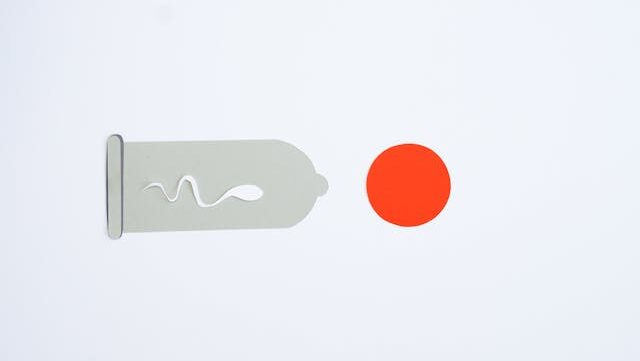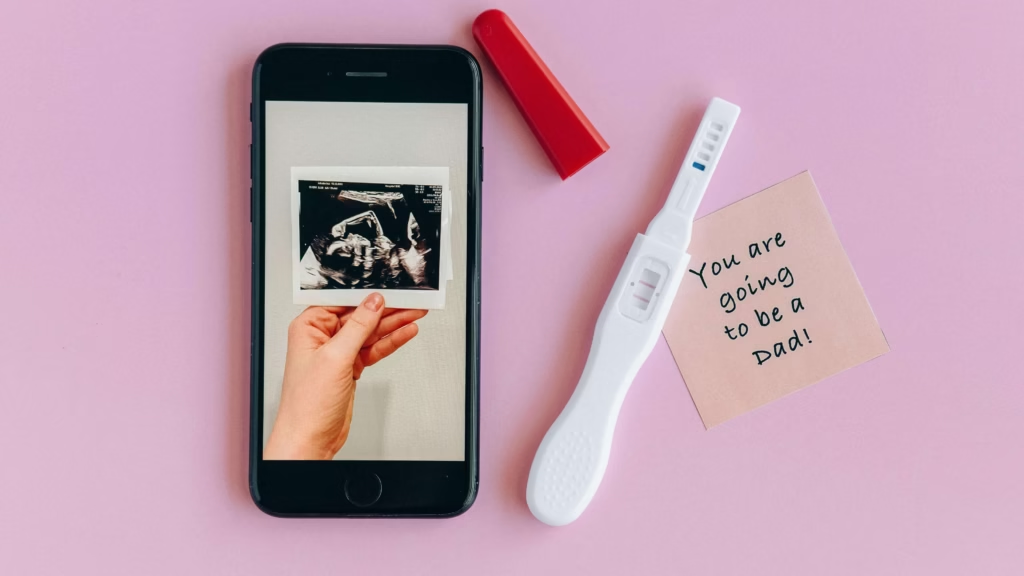Introduction
Did you know that approximately 1 in 8 couples in the United States struggles with infertility, and many turn to egg donation as a viable path to parenthood? While egg donation helps thousands build families each year, understanding the associated egg donation risks is crucial for both donors and recipients. This comprehensive guide delves into the physical, emotional, and legal risks of egg donation, providing evidence-based information to help you make informed decisions. Whether you’re considering becoming an egg donor or you’re exploring fertility options as a recipient, navigating these risks safely requires thorough knowledge and preparation.
What Are Egg Donation Risks?
Egg donation risks encompass the potential physical, psychological, and legal complications that may arise during or after the oocyte donation process. These risks vary in severity and likelihood, affecting both donors and recipients differently.
For egg donors, risks primarily involve medical complications from hormone stimulation and the egg retrieval procedure. Recipients face different challenges, including potential implantation failure, pregnancy complications, or emotional adjustment to using donor eggs.
Understanding these risks within the broader context of assisted reproductive technology is essential for anyone involved in the egg donation journey. Being informed about egg donation risks doesn’t mean avoiding the process altogether but approaching it with appropriate caution and preparation.
Why It Matters
Awareness of egg donation risks matters tremendously because it directly impacts the health and wellbeing of everyone involved in the process. For donors, understanding risks helps ensure their reproductive health isn’t compromised for altruistic or financial reasons. According to a 2023 study published in Fertility and Sterility, women who undergo multiple donation cycles may have a slightly elevated risk of ovarian hyperstimulation syndrome (OHSS), making risk awareness particularly important.
For intended parents, knowing the risks helps set realistic expectations about success rates and potential complications. Different family structures—heterosexual couples, same-sex couples, or single individuals—may experience different emotional challenges when using donor eggs.
Additionally, being well-informed about egg donation risks creates transparency in a process that involves significant financial investment, emotional labor, and medical intervention. This knowledge empowers all parties to advocate for proper screening, appropriate medical protocols, and comprehensive support throughout the journey.
The Process
Understanding the egg donation process helps contextualize the associated risks. Here’s how it typically unfolds:
Screening Phase
- Medical evaluation (blood tests, ultrasounds, genetic screening)
- Psychological assessment
- Family medical history review
- Risk factor: Some genetic conditions may be discovered during screening
Stimulation Phase
- Hormone injections to stimulate egg production
- Regular monitoring via blood tests and ultrasounds
- Risk factors: OHSS, mood changes, discomfort
Retrieval Phase
- Surgical procedure under sedation
- Transvaginal ultrasound-guided aspiration
Post-Retrieval Phase
- Recovery period (typically 1-2 weeks)
- Follow-up appointments
- Risk factors: Delayed complications, psychological adjustment
The fertility clinic’s expertise and adherence to proper protocols significantly influence the likelihood of complications. Reputable clinics follow guidelines established by the American Society for Reproductive Medicine (ASRM) to minimize egg donation risks.
Benefits and Considerations
Benefits
- For donors: Financial compensation (typically $5,000-$10,000), satisfaction of helping others
- For recipients: Opportunity to experience pregnancy, genetic connection through partner’s sperm (when applicable)
- High success rates compared to other fertility treatments (CDC data shows approximately 50% live birth rate with donor eggs)
Physical Considerations
- Short-term risks: OHSS affects approximately 1-5% of donors, with severe cases being rare but requiring hospitalization
- Procedure risks: Infection (less than 1%), bleeding, anesthesia complications
- Long-term considerations: Limited long-term studies exist on repeated egg donation, though current evidence doesn’t suggest significant fertility impacts
Emotional Considerations
- Donors may experience unexpected emotional attachment to genetic offspring
- Recipients might struggle with grief about genetic disconnection
- Both parties may face questions about disclosure and identity later in life
Making an informed decision requires weighing these benefits against egg donation risks, with consideration for your personal health history, support system, and emotional resilience.
Common Misconceptions
Myth 1: Egg donation depletes your egg supply
Reality: Women are born with all the eggs they’ll ever have. The donation process retrieves eggs that would have naturally died off that month. The hormones used simply help mature multiple eggs instead of the single egg that typically develops.
Myth 2: All egg donation risks are physical
Reality: While physical risks receive more attention, psychological risks are equally important. Many donors report emotional challenges following donation, ranging from mild curiosity about genetic offspring to more complex feelings about their reproductive contribution.
Myth 3: Fertility medications used in egg donation cause cancer
Reality: Current research has not established a definitive link between fertility medications and cancer risk. A 2020 study in Human Reproduction found no significant increase in cancer rates among women who had undergone ovarian stimulation for egg donation.
Myth 4: Egg donation is completely unregulated
Reality: While regulation varies by country and state, most reputable fertility clinics follow ASRM guidelines. Some states, like New York and California, have established comprehensive regulations around egg donation risks and donor compensation.
Myth 5: Recovery from egg donation is extensive
Reality: Most donors return to normal activities within 24-48 hours after the procedure, with complete physical recovery within 1-2 weeks.
Legal and Ethical Aspects
The legal landscape surrounding egg donation varies significantly by location, creating different risk profiles depending on where the process occurs. In the United States, egg donation contracts are generally enforceable, though state laws differ on specifics like donor anonymity, compensation limits, and parental rights.
For instance, Washington state requires disclosure of donor identity to offspring at age 18, while other states maintain donor anonymity. California has some of the most developed case law supporting intended parents’ rights, making it a popular destination for egg donation arrangements.
Internationally, egg donation risks include encountering different legal frameworks. Countries like Canada prohibit payment for donation (allowing only expense reimbursement), while others like Italy and Germany have restrictive laws on egg donation in general.
Ethical considerations include:
- Informed consent: Are donors fully aware of egg donation risks?
- Fair compensation: Does payment unduly influence economically vulnerable women?
- Genetic disclosure: Should children conceived through donation have access to their genetic origins?
- Cross-border reproductive care: Does seeking egg donation in less regulated countries create exploitation risks?
Working with an attorney specialized in reproductive law can help navigate these complex legal and ethical considerations while minimizing risk exposure.
Support and Resources
Managing egg donation risks requires appropriate support and resources:
For Donors
- Mental health counseling before, during, and after donation
- Connection with donor support groups like We Are Egg Donors
- Regular follow-up care with reproductive endocrinologists
- Financial planning for compensation
For Recipients
- Fertility counselors specializing in third-party reproduction
- Support groups like Parents Via Egg Donation (PVED)
- Educational resources about talking to children about their origins
- Relationship counseling to navigate emotional challenges
Recommended Resources
- Organizations: American Society for Reproductive Medicine, RESOLVE: The National Infertility Association
- Books: “Having Your Baby Through Egg Donation” by Ellen Sarasohn Glazer
- Online communities: Fertility IQ, Donor Conception Network
- Clinic selection tools: CDC’s Assisted Reproductive Technology Success Rates Report
When researching egg donation agencies or fertility clinics, verify their adherence to ASRM guidelines, check their screening protocols, and inquire about their OHSS rates to minimize egg donation risks.
Conclusion
Navigating egg donation risks requires accurate information, careful preparation, and appropriate support systems. While the process carries both physical and emotional challenges, understanding these risks empowers you to make choices aligned with your values and circumstances. Whether you’re a potential donor or recipient, prioritize working with reputable professionals who follow established guidelines and offer comprehensive support throughout the journey.
Remember that egg donation risks don’t necessarily outweigh the potential benefits—they simply require thoughtful consideration and proactive management. By approaching egg donation with both optimism and caution, you can make decisions that protect your health while potentially fulfilling dreams of family building or helping others achieve theirs.
Ready to take the next step? Consider scheduling consultations with multiple fertility specialists to discuss egg donation risks specific to your situation, and connect with support groups to learn from others’ experiences on this unique fertility journey.
Frequently Asked Questions
What is the most serious risk of egg donation?
The most serious physical risk is severe ovarian hyperstimulation syndrome (OHSS), which occurs in less than 1% of cycles but can require hospitalization. Psychological risks, while harder to quantify, can also significantly impact donors’ wellbeing.
Does egg donation affect future fertility
Current research suggests egg donation doesn’t impact future fertility. The hormones used stimulate eggs that would naturally be lost that month, rather than depleting future egg supply.
How can I reduce my risk of complications as an egg donor?
Choose an experienced fertility clinic that adheres to ASRM guidelines, be completely honest about your medical history during screening, follow medication instructions precisely, and report any unusual symptoms immediately.
Are there long-term studies on egg donation risks?
Long-term studies on egg donors are limited. Most follow-up research tracks donors for only 1-2 years post-donation, creating a knowledge gap about potential delayed effects of the oocyte donation process.
What psychological support should egg donation agencies provide?
Reputable agencies should offer mandatory counseling before donation, check-ins during the process, and post-donation psychological support. They should also provide access to donor support groups and resources about navigating the emotional aspects of donation.
How do egg donation risks compare to risks of natural pregnancy?
While egg donation involves unique risks related to ovarian stimulation and egg retrieval, pregnancy risks for recipients are generally comparable to those in naturally conceived pregnancies of the same age group, though multiple pregnancies (more common with some fertility treatments) carry additional risks.







